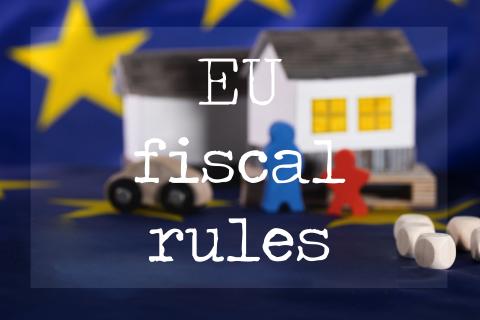European Economic
and Social Committee
EU fiscal rules – EESC calls for reforms
The EU budgetary rules applicable in the Member States must be modified to make sustainable post-COVID-19 recovery possible. Pragmatic solutions need to be found. The focus must be on strengthening public investments for the green and digital transitions.
The EU fiscal framework needs to be revised not just to stabilise the economy in the medium term. It is also vital in order to finance the socio-ecological transformation of our economy and guarantee full employment, high-quality jobs and just transitions. In the opinion drafted by Dominika Biegon and adopted by the assembly at the October plenary session, the message is clear: the European Commission must press on with revising the EU economic governance framework.
Speaking during the debate, Ms Biegon said: The EESC promotes pragmatic solutions for the future of the EU fiscal framework: our opinion shows how ideological divides in the debate on sovereign debts can be overcome. EU fiscal rules can be significantly improved without changing the EU Treaties. We can end the chronic lack of public investment and give Member States more leeway to counter economic downturns adequately in the future without endangering fiscal sustainability. The EU institutions should lose no time in proposing reforms to pave the way for sustainable recovery and a just transition.
The Committee points out that before the revised framework comes into force the Commission should put forward guidelines for a transition period. During this period the excessive deficit procedure should not be triggered but the "unusual event clause" could be used on a country-specific basis.
Any future fiscal framework must strengthen public investments, allow for more cyclical leeway and permit greater flexibility and country-specific differentiation as far as debt adjustment paths are concerned, while guaranteeing fiscal sustainability.
More specifically, as in past opinions, the EESC's main proposal for the revision of the fiscal framework is to introduce a golden rule for public investments, in combination with an expenditure rule.
In connection with this, the EESC welcomes the proposal made by the European Fiscal Board (EFB) in 2020 to introduce country-specific elements in a simplified fiscal framework, in particular the suggestion regarding the differentiation of the fiscal adjustment in the Member States while maintaining debt sustainability.
Fiscal policy is traditionally the domain of parliamentary politics and decisions in this field affect the entire structure of state expenditure and revenue. For this reason, both national parliaments and the European Parliament should be given a prominent role in the future EU economic governance framework.
Civil society organisations must also be more involved in the European Semester at both national and EU level. The partnership principle, which has long been a tradition in the governance of the European Structural and Investments Funds, should serve as a blueprint for effectively involving civil society.
